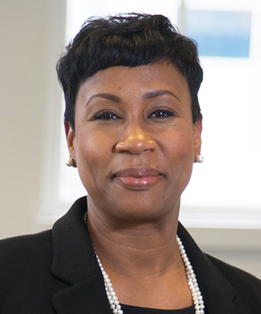|
Expand Opportunity, We Must Fully Commit to
Fair Housing
By Lisa Rice, President and
CEO of the National Fair Housing Alliance, and
Nikitra Bailey, EVP at the
Center for Responsible Lending
The African principle of
Sankofa teaches that to have a strong future, we must bring
forth knowledge gained from our past. The United States is
at an inflection point on race – including on the
fundamental question of housing policy.
In the United States, we
continue to uphold exclusionary housing practices, rooted in
our segregationist past, that hold back whole communities
and stifle economic growth. We should instead choose
inclusive and equitable
solutions that support all
people, particularly children; strengthen our communities;
and grow the economy. Fully enforcing the Fair Housing Act,
including its Affirmatively Furthering Fair Housing mandate,
offers the
opportunity to build
economic stability for Black people and for communities long
denied. The incoming Biden-Harris administration can seize
this opportunity.
Unfortunately, President
Donald Trump did not, and he has grossly mischaracterized
AFFH, which is a requirement to undo segregation and
discrimination and the inequity they created. His false
statements about the suburbs evoke racist tropes. They are
reminiscent of discriminatory policies imposed by federal
agencies that warned of the “infiltration of … inharmonious
racial groups” and promoted the use of racially restrictive
covenants. |

Lisa Rice

Nikitra Bailey |
|
After four years of
desolation of civil rights and less-than-adequate housing
policy, we are looking forward to working with the
Biden-Harris administration and hope they place tackling
housing discrimination, ensuring equal housing opportunity
for all, and advancing restorative justice solutions at the
forefront of their priorities.
To move forward as a
country, opportunity must not be monopolized by suburban,
mostly White communities. We must recognize that the pursuit
of fair housing is a shared value and a shared interest.
Diverse, inclusive communities are stronger socially,
culturally and economically.
By looking at the Black
experience in America and drawing on the principle of
Sankofa, we see where our country fell short on delivering
its promise of life, liberty and the pursuit of happiness.
Despite constant violence,
Black people were resilient, establishing thriving
communities in cities like Tulsa, Oklahoma; Memphis,
Tennessee; Wilmington, North Carolina; and Rosewood,
Florida. However, a state-sponsored system of terrorism and
redlining relegated Black families to live in
environmentally toxic areas and deprived them of economic
opportunity. Meanwhile, the nation’s first fair housing law,
passed during Reconstruction in 1866, languished for 102
years without enforcement. Today’s housing landscape
reflects this ugly history.
Our large, overwhelmingly
White middle class was created with direct government
support — greatly expanded through New Deal programs like
Federal Housing Administration-backed mortgages, Social
Security, GI Bill benefits, and Department of Agriculture
loans. The government facilitated and subsidized the
accumulation of intergenerational wealth — but only
for White families. Even as
the labor and taxes of Black people helped push the economy
forward, they were systematically denied financial security,
public education and voting rights.
Like our present moment,
1968 was filled with tragedy and promise. Mere days
following the assassination of Dr. Martin Luther King Jr., a
measure designed to expand opportunity was put in place —
The Fair Housing Act. In addition to banning the invidious
practice of housing discrimination, this civil rights law
requires the Department of Housing and Urban Development to
take active steps to ameliorate state-sponsored segregation
and promote neighborhood integration.
The latter obligation was
captured in the law’s section on Affirmatively Furthering
Fair Housing. However, no federal regulation to provide
meaningful guidance on this requirement to foster
well-resourced inclusive communities free from
discrimination was promulgated until 2015. The goal of AFFH
is to expand housing choices and make all neighborhoods
places of opportunity.
In July of 2020, the Trump
administration announced it would revoke the 2015 AFFH rule,
which was designed to eliminate racial disparities in
housing. It has offered inaccurate and inconsistent excuses
for gutting the 2015 AFFH rule and has distorted its
purpose, therefore ignoring the benefits of eliminating
housing discrimination.
Locking families out of the
opportunity to own a home or live in their community of
choice has fueled the growing Black/White wealth gap, a
divide that drags down the economy. According to recent
reports from both Citibank and McKinsey & Company,
addressing this racial wealth gap could expand the U.S.
economy by $1 trillion per year. This would add thousands of
dollars each year to the pockets of the typical family and
help those left behind in today’s uneven recovery.
Unleashing the full wealth-building potential of Black
consumers would result in increased savings and increased
spending — money that would circulate throughout the
economy, creating jobs, lifting wages and raising living
standards along the way. In other words, the financial
benefits of closing the racial wealth gap would be broadly
shared by everyone.
Our nation has failed to
achieve the goals of the Fair Housing Act because we never
committed to fully implementing the law or eliminating the
structural barriers put in place by centuries of race-based,
harmful policies. We must now muster up the will to do so.
In addition to the moral
imperative, it
promises a clear financial benefit for all parts of our
country — city,
suburb and rural — and for all people of all backgrounds.
Lisa Rice is President
and CEO of the National Fair Housing Alliance (NFHA), an
organization that works to eliminate housing discrimination
and ensure equal housing opportunity for all people. She
previously served as president and CEO of the Fait Housing
Alliance of Greater Toledo.
Nikitra Bailey is Executive
Vice President at the Center for Responsible Lending (CRL),
an organization focused on closing the racial wealth gap and
protecting homeownership and family wealth by eliminating
abusive financial practices.
|